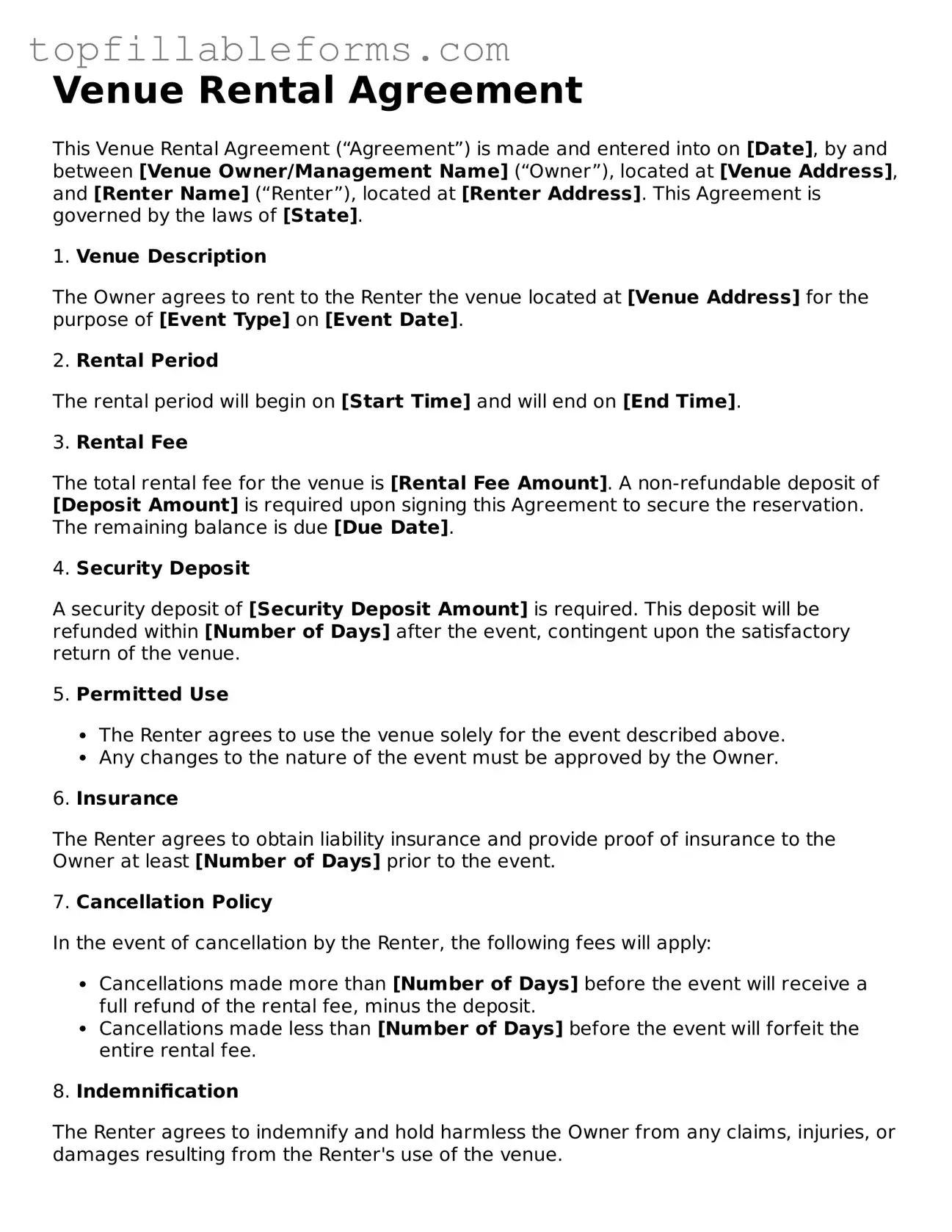Free Venue Rental Agreement Form
A Venue Rental Agreement is a legal document that outlines the terms and conditions for renting a space for events, gatherings, or activities. This agreement protects both the venue owner and the renter by clearly defining responsibilities, payment terms, and usage guidelines. Understanding this form is essential for ensuring a smooth and successful event experience.
Open Venue Rental Agreement Editor Here

Free Venue Rental Agreement Form
Open Venue Rental Agreement Editor Here
Finish the form now and be done
Finish your Venue Rental Agreement online by editing, saving, and downloading fast.
Open Venue Rental Agreement Editor Here
or
▼ PDF File
